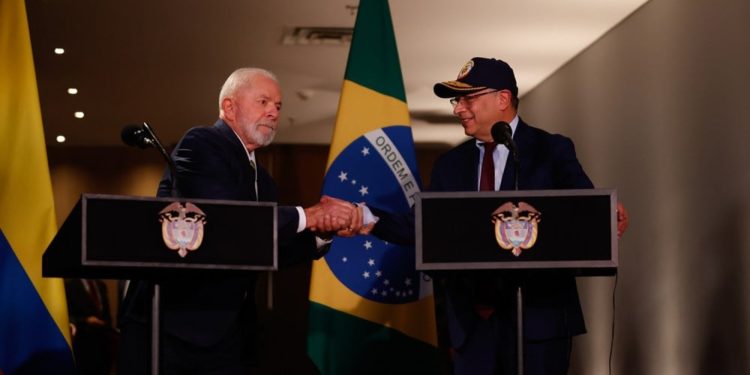
Key Developments in South American Geopolitics
This week in South American geopolitics, we observe significant shifts in foreign policy directions, unity within Venezuela’s opposition, and a Brazilian actor making waves in a U.S. Civil War film.
Evolving Foreign Policy Landscapes in South America
As 2023 progresses, South America witnesses pivotal changes in its foreign policy approaches. Under President Luiz Inácio Lula da Silva, Brazil has supported Argentina’s potential inclusion in the BRICS+ group, advocating for stronger ties among emerging economies. However, Argentina’s political landscape transformed with President Javier Milei’s election, steering its foreign policy towards Western alliances and proposing a partnership with NATO, indicating a strategic pivot from its previous alliances.
Conversely, Colombia, under President Gustavo Petro, seeks to deepen its connections with BRICS+, supported by Brazil during Lula’s visit to Bogotá. Despite their existing NATO partnership, Colombia’s new direction underlines its commitment to diversifying international relations and reinforcing its role in global geopolitics.
Symbolic Moves and Regional Integration
These policy shifts, while largely symbolic at present, have profound implications for regional cooperation in Latin America. The contrasting foreign policies of Argentina and Colombia highlight the ongoing challenges and complexities of achieving cohesive regional integration, which has historically seen fluctuating success.
Lula and Petro continue to champion the cause of regional integration, though practical progress remains challenging. Recent dialogues, particularly around environmental and economic policies, showcase the nuanced interactions between these nations, further complicated by differing views on energy and environmental preservation.
Deepening Ties Amidst Ideological Shifts
The ideological rifts are also influencing bilateral relations, particularly between Colombia and Brazil, which have seen increased cooperation in light of Venezuela’s political climate. This cooperation extends to various sectors, including agriculture and tourism, suggesting a potential for more robust partnerships despite broader geopolitical uncertainties.
Significant Events and Cultural Intersections
Upcoming events such as Mexico’s presidential debates and Argentina’s diplomatic engagements in China indicate a busy political schedule that could further influence the region’s dynamics.
In the cultural realm, Brazilian actor Wagner Moura stars in a critically acclaimed film portraying a civil conflict in the United States, drawing parallels with political tensions in both the U.S. and Brazil. His role underscores the global influence of Brazilian talent and prompts reflections on political and social issues through the lens of cinema.
Conclusion
As South America continues to navigate through a complex geopolitical landscape, the actions taken by leaders like Milei, Petro, and Lula will significantly shape the future of regional and international relations. Their decisions reflect a broader narrative of strategic realignments and the pursuit of autonomy in global politics, amidst a backdrop of cultural exchanges that resonate with global audiences.








